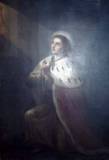Index

|
Saint Casimir Parish
MINISTRY OF PRAISE
DECEMBER, 2018
St. Casimir Parish
Almighty God,
grant that with the help of St. Casimir’s intercession
we may serve you in holiness and justice.
|
 |
PLEASE PRAY FOR THE FOLLOWING INTENTIONS
-
That people, who are involved in the
service and transmission of faith, may find, in their dialogue with culture,
a language suited to the conditions of the present time. (December
Papal intention)
That we
welcome the presence of Jesus that comes to us through the Motherhood of the
Blessed Virgin Mary.
That
this sacred season of Advent will bring with it an end to the culture of
death and the strengthening of the culture of life.
That
God who has begun the good work of drawing our parish community together in
faith will continue to perfect it this Advent.
That
those who hold public office will work selflessly for righteousness,
freedom, and peace.
That God bless Father
Bacevice and the Pastoral and Finance Councils in their efforts to secure
the future of St. Casimir Parish.
That all parishioners recognize their
responsibility to St. Casimir Parish’s future through financial support,
commitment to parish activities, sharing ideas, and most importantly prayer.
That the love within families will
increase ever more the knowledge of what is truly good and valuable.
That our personal experience of suffering
may be an occasion to better understand the situation of unease and pain,
which is the lot of many people who are alone, sick, or aged, and stir us
all to give them generous help.
That those who pray be validated in their
belief of its power.
WHAT’S HAPPENING  AT ST. CASIMIR PARISH?
AT ST. CASIMIR PARISH?
-
December 7
- First Friday Adoration of the Blessed Sacrament, 8:00 – 9:00am in Church
-
December 8
- The Immaculate Conception of Mary
-
December 12 -
Eucharistic Adoration,
6:00-7:00pm in Church
|
SAINTS FOR DECEMBER
SAINT AMBROSE
Bishop, Doctor
(340? - 397)
December 7th
|
 |
“Now,
man is not wrong when he regards himself as superior to bodily
concerns, and as more than a speck of nature or a nameless
constituent of the city of man. For by his interior qualities he
outstrips the whole sum of mere things….Steeped in wisdom, man
passes through visible realities to those which are
unseen.
(Ambrose,
THE CHURCH IN THE MODERN WORLD, 14-15)
|
|
Ambrose was born in Trier Germany, where his
father was Prefect of Gaul. When his father died Ambrose was taken
to Rome and educated in law. He took a position in government as
governor of Milan about 370. Although he was still studying the
faith, he was chosen to be bishop when he intervened to keep peace
among conflicting factions at the election of a bishop. Baptized on
December 7, he was consecrated bishop a week later.
As bishop, Ambrose turned his attention from
political government to church government. He was a pastor to his
people and took a firm stand in controversial matters of Church and
state. Afraid of no one, he even took on the emperor. St. Ambrose is
recognized as a doctor of the church for his teaching. He was a
strong defender of Catholic truth and was well versed in sacred
scripture. He had a talent for using ideas of the great
philosophers, such as Cicero, to support Christian truth. He had an
interest in liturgy for which he composed hymns. Ambrose is
remembered for his influence on St. Augustine who heard his sermons
and whom Ambrose baptized at Easter in 385.
St. Ambrose was the outstanding bishop in Italy
in his time. Even the bishops of Rome looked to him for leadership
and guidance. From his contemporaries we learn that he was
appreciated for his sensitive, human gentleness and deep desire to
teach the faith.
Source: IN HIS LIKENESS, Rev.
Charles E. Yost; SAINTS AND FEAST DAYS, Loyola University Press;
365 SAINTS, Woodeene Koenig-Bricker; SAINT OF THE DAY, Rev. Leonard
Foley, O.F.M., Editor |
|
 |
THOUGHTS FROM THE CATECHISM OF THE
CATHOLIC CHURCH |
The Incarnation
#479 At the
time appointed by God, the only Son of the Father, the eternal Word, that is,
the Word and substantial Image of the Father, became incarnate; without losing
his divine nature he has assumed human nature.
#483
The Incarnation is therefore the mystery of the wonderful union of the divine
and human natures in the one person of the Word.
|
 |
REFLECTION |
 |
LEARN FROM ME,
FOR I AM MEEK AND HUMBLE OF HEART
(Matthew
11:29)
Throughout the
years, it was abundantly clear that Mother Teresa had a tender
devotion to the Mother of Our Lord, Mary most holy. Even in the
constitution of the Missionaries of Charity, she wrote that her
entire religious order is dedicated to the Immaculate Heart of
Mary.
Our Lady,
during her life on earth, had to do the ordinary things of
everyday life, like washing, cooking and cleaning. She did many
of the same things that we do each day. So why is she “most
holy” and “full of grace,” while many of us are not so holy and
not so grace-filled? The secret is not in what she did but in
how she did things. She did everything with love for Jesus. If
we would open our hearts to our heavenly Mother and allow
ourselves to be imbued with the spirit of Mary, which is nothing
less than the Holy Spirit, then we would be holy too. As Mother
Teresa said, let us “be humble like Mary, so as to be holy like
Jesus.”
Source:
MOTHER TERESA, WITH GREAT LOVE, by Susan Conroy, p. 19, 2016
Creative Communications for the Parish

|


 AT ST. CASIMIR PARISH?
AT ST. CASIMIR PARISH?

